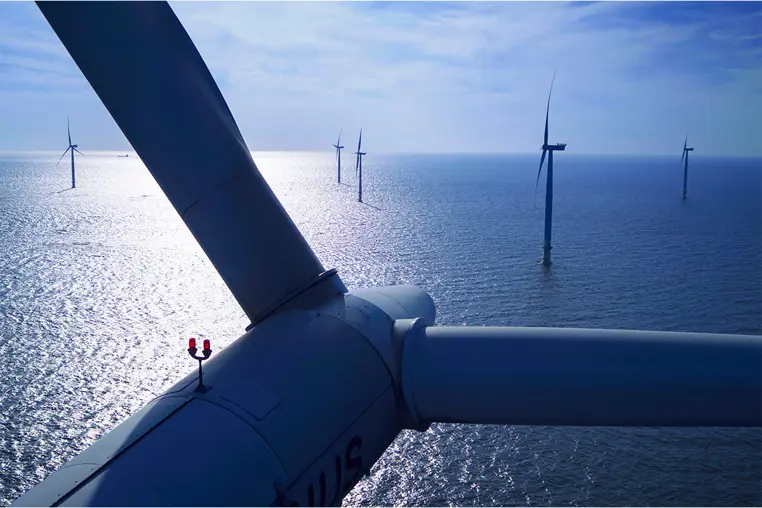Finland: Europe's Ready-to-Scale e-Fuel Solution
Across Europe, momentum is building to phase out fossil fuels. But while many countries are still drawing up roadmaps, Finland is getting to work. For companies looking to lead the transition to cleaner energy, Finland offers more than potential, it provides a practical, low-risk operating environment that's ready right now.
News 6.10.2025

From Concept to Capability
In Finland, eFuel production has moved from concept to reality. Companies like TotalEnergies, Norsk e-Fuel, and Verso Energy are developing industrial-scale capacity, not as experiments, but as strategic investments backed by thorough due diligence.
"The economics work here in ways they don't elsewhere. When electricity dominates your cost structure, Finland's energy advantage becomes your competitive advantage," says Juha Peltomäki, Head of Bio & Circular Economy at Invest in Finland.
A massive pipeline of wind power projects, equivalent to 25–50 modern nuclear reactors, is feeding into green hydrogen production, the cornerstone of eFuels synthesis. And that capacity continues to grow.
Electricity is the single largest cost in e-Fuel production, often more than 60% of total expenses. Finland's consistently low industrial power prices are therefore a major advantage, delivering superior margin control and long-term viability.
Smarter Carbon Use
However, electricity is just one part of the equation. The other key input is biogenic carbon. Finland sources this from the side streams in its forest industry—residues from timber processing that would otherwise be used for heat and power. It's a local, traceable, circular solution that avoids pressure on the food system and biodiversity.
"We're using forest industry residues, carbon captured through natural growth, now used more efficiently," explains Peltomäki.
Built for Scale, Backed by Policy
What distinguishes Finland is its ability to support industrial-scale production immediately.
- Grid-ready: High-voltage infrastructure is in place across multiple regions.
- Water access: Ample freshwater resources meet electrolysis needs, with room to grow.
- Skilled talent: Local expertise in engineering and industrial processes makes scaling easier.
Fast, predictable permitting is another critical advantage. Several global companies have relocated projects to Finland for this reason, streamlining timelines and reducing project risk. Currently, investors also benefit from a 20% tax deduction on eligible industrial investments (up to €150 million), plus R&D grants and co-funding through Business Finland.
"Even with a proven process," adds Peltomäki, "you still need to optimize for local conditions. That's where we help with funding, technical support, and the right local partners."
A market in motion
Demand for e-Fuels is rising fast, especially in aviation. The EU requires 1.2% of aviation fuel to come from e-Fuels by 2030, increasing in increments to 35% by 2050. Producers ready by 2030 will be the first to secure long-term offtake deals.
Beyond aviation, synthetic fuels are gaining traction in shipping, heavy transport, and chemical industries, especially where electrification falls short.
"The aviation mandates are coming whether companies are ready or not. The question is: will you be producing in 2030 or still planning?" says Peltomäki.
With a stable digital society, strong logistics, and dedicated industrial parks like the Kemi-Tornio eco-industrial region, Kokkola Industrial Park, and Rauma, Finland isn't just a location; it's a launchpad. These zones offer ready-made zoning, utilities, and partnerships to accelerate time to production.
So why FinlanD — and why now?
Finland stands out with its rare combination of low-cost energy, policy stability, and industrial readiness. While others are still planning, Finland is delivering with energy certainty, biogenic feedstocks, and a regulatory environment built for scale. "Most locations can offer one or two advantages. Finland is one of the best places where all the pieces – energy, feedstock, infrastructure, policy – actually align," Peltomäki notes.
From clean electricity and reliable carbon inputs to a supportive business environment and real momentum on the ground, Finland isn't just a promising option - it's a strategic advantage.
More information

Bioeconomy and Chemical Industry